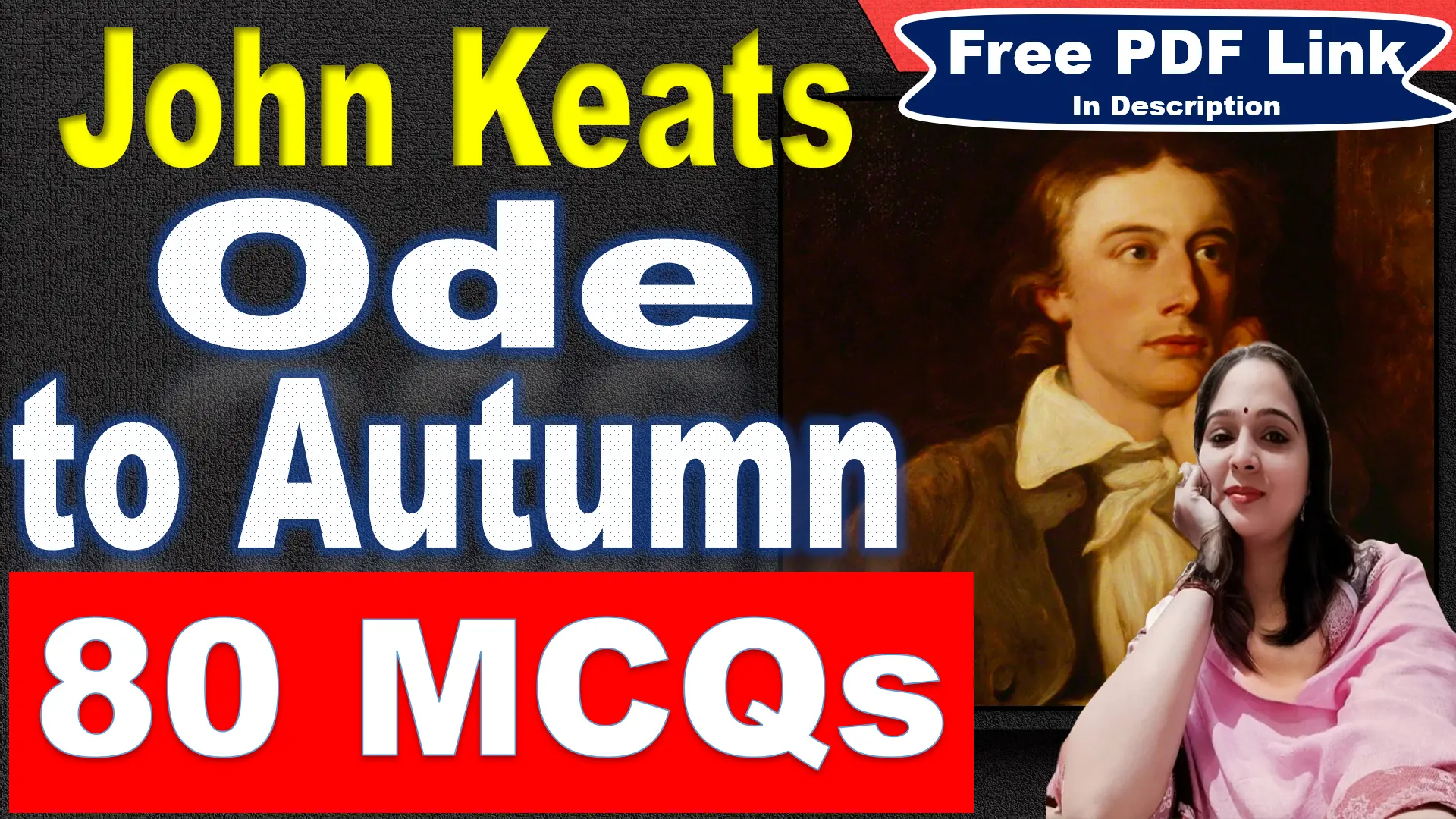
Essay Type Questions
Write the critical appreciation of the poem “Melancholy” by John Fletcher.
Introduction “Melancholy” is a poignant exploration of the bittersweet nature of melancholy, where the speaker finds a unique kind of sweetness in sadness and solitude. The poem is a masterpiece of literature that delves into the human heart and soul, exploring themes of love, loss, and the fleeting nature of happiness.
Form and Structure The poem is written in verse form with a varying rhyme scheme. It consists of two stanzas with a total of 19 lines. The structure of the poem mirrors the speaker’s contemplative state of mind, with each line contributing to the overall theme of melancholy.
Imagery and Metaphor Fletcher uses vivid and rich imagery in the poem. He describes “fountain-heads and pathless groves”, “moonlight walks”, and a “still gloomy valley”. These images paint a vivid picture of quiet, introspective moments that evoke a sense of melancholy. The speaker also uses metaphorical language to convey their feelings and experiences, such as “a tongue chain’d up without a sound” to illustrate the silence of melancholy.
Theme and Message The central theme of the poem is the exploration of melancholy. The speaker finds a unique kind of sweetness in sadness and solitude. They suggest that there’s a certain wisdom in recognizing and embracing these moments of melancholy. The message of the poem is that there can be a certain beauty and wisdom in recognizing and embracing moments of melancholy. It suggests that these moments of introspection can offer a unique perspective on life.
Tone and Mood The tone of the poem is contemplative and introspective. The speaker is in a state of deep thought, reflecting on the nature of melancholy. The mood of the poem is somber and reflective, mirroring the speaker’s state of mind.
Language and Style Fletcher’s language is rich and evocative, filled with vivid imagery and thoughtful metaphors. His style is characterized by its exploration of emotion and introspection. He uses metaphorical language to convey the speaker’s feelings and experiences, creating a deeply personal and emotional resonance with the reader.
Poetic Devices Fletcher employs several poetic devices in the poem such as metaphor, imagery, personification, oxymoron, and repetition. He uses metaphorical language to convey the speaker’s feelings and experiences. The speaker uses an oxymoron by describing melancholy as “sweetest”, combining two contrasting ideas. The speaker gives human characteristics to “vain delights” and “pale passion”, which are forms of personification.
Conclusion In conclusion, “Melancholy” by John Fletcher is a profound exploration of the nature of melancholy. Through vivid imagery, thoughtful metaphors, and a contemplative tone, Fletcher paints a poignant picture of the sweetness found in moments of solitude and introspection. The poem serves as a reminder of the beauty and wisdom that can be found in recognizing and embracing our moments of melancholy. It is a testament to Fletcher’s mastery of language and his deep understanding of human emotion.





